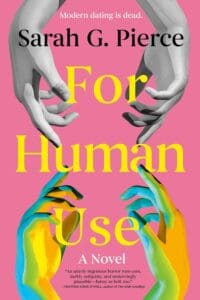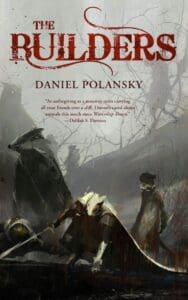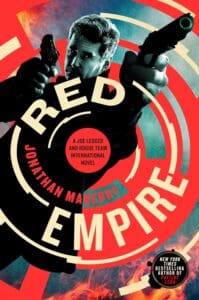
Synopsis:
Ten years after the invaders arrived, the scant traces of humanity still live every second of their lives in absolute terror. Forced from their cities into ragged communes on the edges of the world, they cling to their precarious existence by the weight of their micro-decisions, one careless move or false breath away from certain death. Some believe they’re the lucky ones; others believe they’re cursed. But something in the sky is changing, and seeds of hope now grow amongst the carnage and devastation. Will they live to see the dawning of a new day? Or will they be too few and too broken for it to matter?
AFTER follows the journey of a lonely motorcycle messenger who delivers weather-beaten notes to survivors scattered across a cracked and fissured western United States, a world both devastating and somehow beautiful. Her road takes her over vast landscapes, into the hands of humans capable of unspeakable evil, and through a hell worse than all of it — her guilt and grief slowly eating away at her.
Review:
A grey dystopian novel in which the reader follows our protagonist through a post-apocalyptic wasteland, “After,” by Drew Starling is a bleak, shuddering story of desperation, disaster, decay- and extraterrestrial inconvenience. With strong writing, a complex and courageous main character, and suspense so taut it could be strummed like a guitar string- Starling’s latest is a little “The Road,” and Wells in all the right places. A nihilistic and unflinchingly honest motorbike ride through the pitiful remnants of our planet, if you’re looking for a bit of a “feel-bad,” read “After,” by Drew Starling is already out- thank you to the author for my complementary copy.
We follow an unnamed narrator who is only really ever referred to as “The Woman.” On her motorbike she travels between noticeboards, delivering messages to those in separate communes, where the stubborn dregs of the human race slowly rot away.
Starling creates a desolate, meticulous, startlingly quiet and empty atmosphere, one in which the woman, the reader, and indeed he himself, have nowhere to hide. There is something that feels wrong in trying to carry on with ordinary life after something so earth-shattering (it’s a sensation I certainly felt post-COVID and something I could believe Starling did too) and there’s nothing more earth-shattering than an apocalypse. By the time we arrive, it has been 10 years, and humanity is at this awkward, semi-adapted impasse- we wear (perhaps allegorical) oxygen converters, have formed and organised communes, and indeed are able to communicate between them- and yet still we find ourselves in a rather unfortunate position- spectacularly doomed.
Our main character is expertly done- truly. The woman is the shape I think a good person would have to take, given the circumstances. She is of course, good, using her days to allow for communication between separated loved ones, at one point, taking a little girl under her wing. She is also, however, rather cold- equally desperate to survive, her outward compassion worn thin- I would argue a rather honest portrayal. The more miles travelled alongside her, the further complex she becomes- grief-stricken and really, despite her quiet strength and grit, as broken as just about everybody else.
Of course we all break differently, and humanity being humanity, we never really help ourselves, and find a way to ruin even the end of the world. We soon learn that, as they normally tend to, the twin horsemen of greed and hubris rear their heads, with all too many human characters becoming nasty pieces of work- a couple, cyborg-lead cannibal barbarians… Perhaps some shred of hope may have been found amidst the disease and malnourishment in our small triumphs- the communes, the co-operation, the converters, the woman and her decency- but ultimately, at least in my view, that’s just not enough. There is no real chance we stand, thus there is no real effort to ever save the world, and even during this purgatory, we still can’t help but be rotten. Sure there are some happier moments, some embers of hope, but they are few and far between, and quickly stamped out by a host of nastiness and misfortune. It is just that- the fleetingness and then complete absence of hope that really sets “After,” apart from the bulk of the sub-genre. It’s a pretty staunchly unhappy book.
On that cheerful note, we’ll wrap up. “After,” is a novel that is devoid of sentimentality, and leans into this wholly. Nihilistic and unflinchingly honest, dystopian, as raw as an open nerve and twice as sensitive- this one will leave its readers hollowed out and faintly exhilarated- I recommend it. From its long, bleak stretches of post-apocalyptic scenery, to its sudden, whiplash-inducing bursts of violence and action, “After,” is a glorious and original entry to the sub-genre, and Starling is evidently one to watch.









Leave a Reply